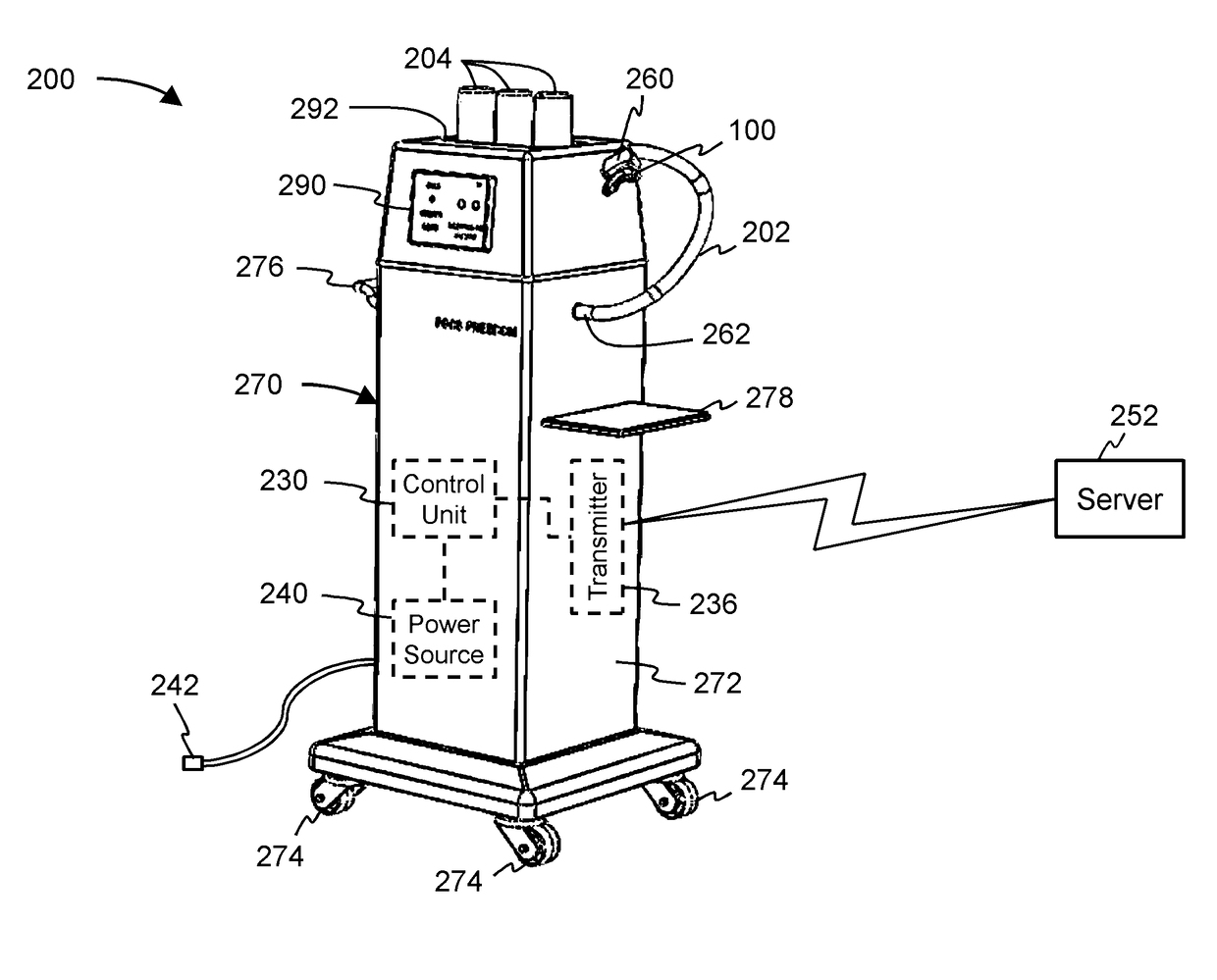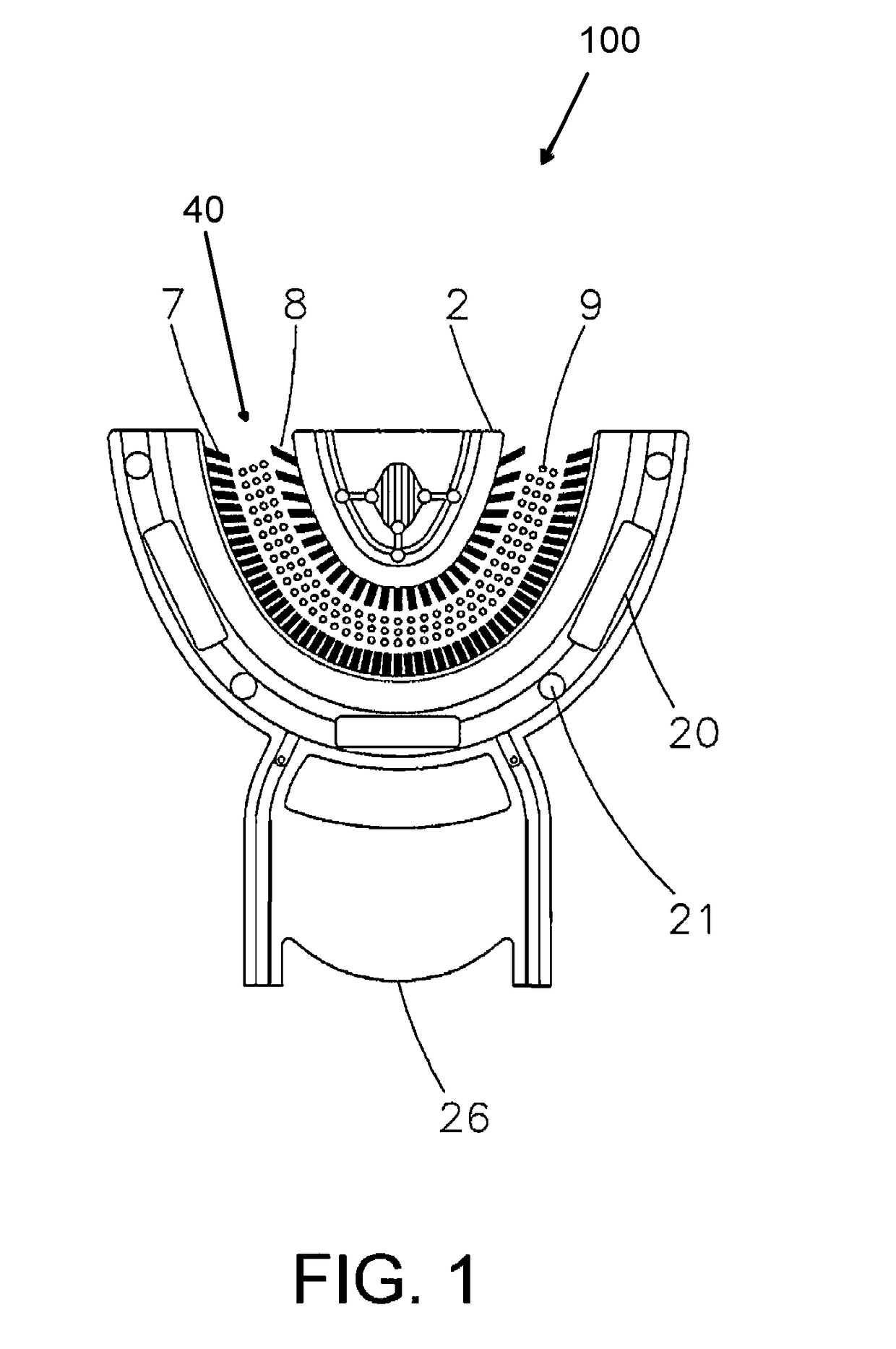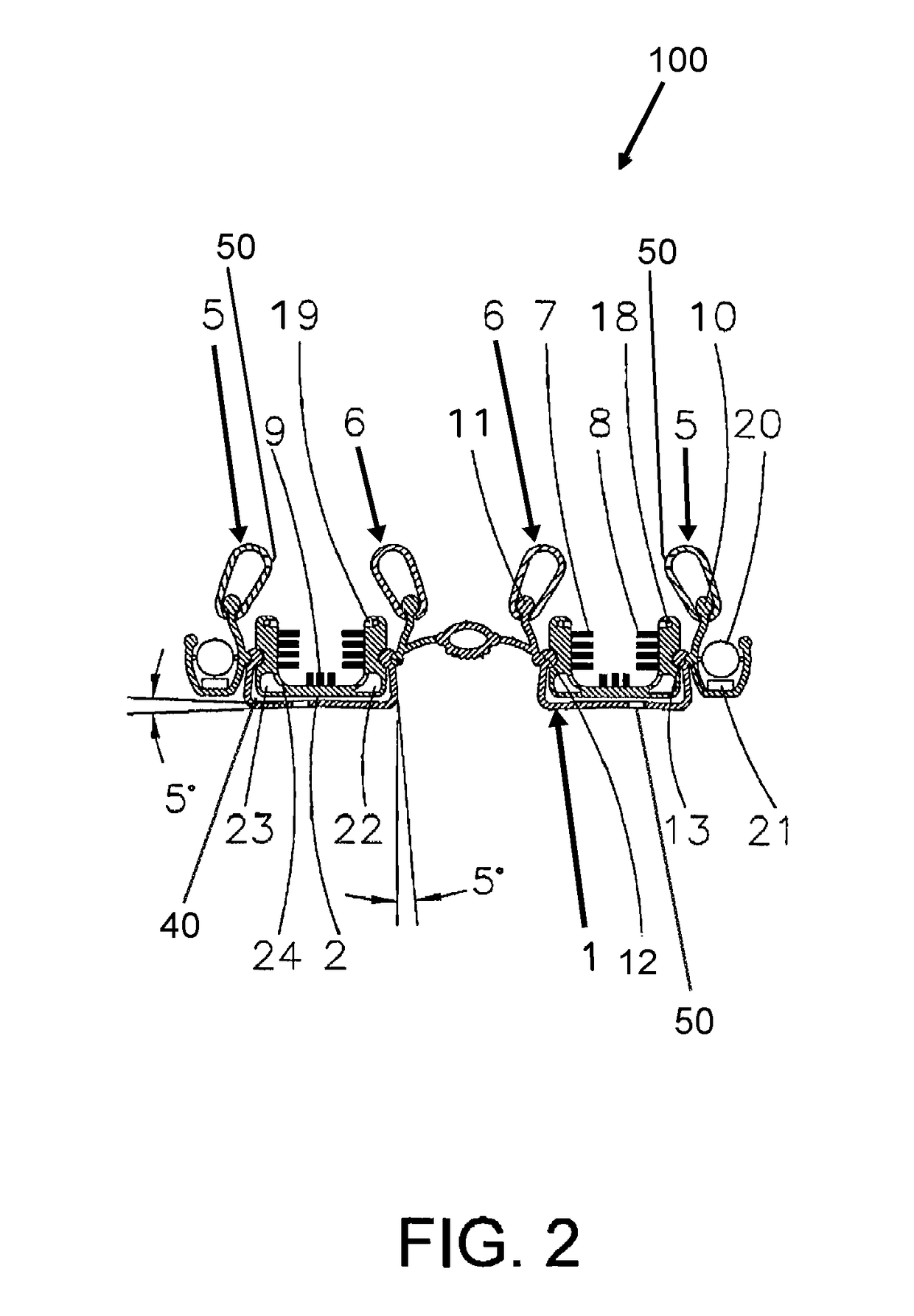Oral care system with mouthpiece
a mouthpiece and oral care technology, applied in the field of dental hygiene system, can solve the problems of inability to perform inability to properly clean the teeth of people suffering from physical and/or mental disabilities, and significant steps in the conventional oral care method, so as to promote oral care and clean teeth
- Summary
- Abstract
- Description
- Claims
- Application Information
AI Technical Summary
Benefits of technology
Problems solved by technology
Method used
Image
Examples
Embodiment Construction
[0050]The following detailed description illustrates the invention by way of example, not by way of limitation of the principles of the invention. This description will enable one skilled in the art to make and use the invention, and describes several embodiments, adaptations, variations, alternatives and uses of the invention, including what is presently believed to be the best mode of carrying out the invention.
[0051]Referring to the figures in detail and first to FIGS. 1-2, there is shown an exemplary embodiment of a hands-free oral hygiene system for cleaning teeth and gums. The hands-free oral hygiene system provides effective cleaning of teeth through a device that maintains a stable position within the mouth without being held by a hand, which is especially helpful for people who lack dexterity. FIGS. 1-2 illustrate oral hygiene system 100 formed within the structure of a mouthpiece frame 1. The mouthpiece 1 is elastic and can conform to the shape of a user's oral cavity (i.e...
PUM
 Login to View More
Login to View More Abstract
Description
Claims
Application Information
 Login to View More
Login to View More - R&D
- Intellectual Property
- Life Sciences
- Materials
- Tech Scout
- Unparalleled Data Quality
- Higher Quality Content
- 60% Fewer Hallucinations
Browse by: Latest US Patents, China's latest patents, Technical Efficacy Thesaurus, Application Domain, Technology Topic, Popular Technical Reports.
© 2025 PatSnap. All rights reserved.Legal|Privacy policy|Modern Slavery Act Transparency Statement|Sitemap|About US| Contact US: help@patsnap.com



